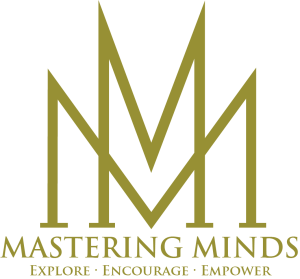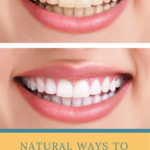“What can you do if the people in your life, in particular family, continue to inflict wounds although you keep forgiving? Isn’t it better to keep them at arms length ?” – Ruby
“Healing comes when we meet our wounded places with compassion.” — Stephen Levine
 Last week, Step 4 in our series Ten Steps to Unconditional Love was Are You Drinking Rat Poison? Some readers thought I was suggesting that you make up with
Last week, Step 4 in our series Ten Steps to Unconditional Love was Are You Drinking Rat Poison? Some readers thought I was suggesting that you make up with
anyone who has hurt you and give them access to your heart again. Absolutely not. You don’t want people in your life who inflict wounds. Arms length?
Toss them out of your life altogether if you need to!
I’m simply suggesting that you find a way to heal so you can move on. You don’t ever need to relate to someone who hurt you. But you also don’t need to
nurture hate or revenge, because that just hurts you and casts a dark cloud over your future. It’s bad enough that you didn’t get the past you deserved.
Don’t let that wound continue to fester inside you. Don’t keep fighting a battle that you shouldn’t have had to fight to begin with.
Instead, let yourself cry and heal. Take care of you with all the tenderness you deserved as a child and deserve now. Accept what happened, not because
it was okay for even one minute, but because that allows you to grieve, so you can heal yourself and move on. You can’t change your past, but you can
enlarge your future (as Paul Boese famously said).
So today we have Step 5: Heal your heart, heal your life.
Sometimes, we just can’t let go of the past. We’re told we “should,” but we’re still resentful, or even furious. There’s a reason for that.
No, I don’t mean whatever wrong was done to you. You may well have every reason to be furious, but that doesn’t mean you have to be. Nurturing resentment
over the years is a prescription for bitterness — not something any of us would choose. Quite simply, it hardens your heart, and that doesn’t serve
you. And it keeps you from loving your child — and even yourself — with an open heart.
No, the reason we can’t move on is that we need our rage. It’s a defense against the agony. All that pain from your childhood is walled off in a corner
of your heart. That made sense when you were a kid. It was the only way to keep the pain at bay so it didn’t swamp you, so you could keep growing.
Anger makes a great blockade. (You’ve heard that the best defense is a good offense?) Which would be ok, except that it’s hard to love whole-heartedly
with only half your heart available.
You may have heard the saying, “It’s never too late to have a happy childhood.” It means we can always embrace that sad or angry child within
us and nurture him or her. The paradox is that to do that, we first have to face the pain that we didn’t get the happy childhood we deserved. In fact,
we have to give up all hope of ever having a better past. That acceptance is what allows us to grieve. Think of grief as washing away the pain of the
past. It’s what frees us to move on. To finally give ourselves all that love we were missing.
Ready to heal your heart, so you can heal your life? Believe it or not, all you need is some time and some courage. This isn’t easy, but you can do hard
things. Give yourself all the support you need, which might mean that you do this with a counselor.
1. Find a photograph of yourself as a child.
2. Light a candle and sit quietly. Breathe deeply.
3. Reach out to that child inside you who’s holding all that hurt. Look at your photo. Embrace that small child within you who’s still
suffering from your childhood. Let her (him) tell you the whole painful story. Breathe.
4.Resist the urge to trivialize. Don’t compare your pain to anyone else’s pain. If it hurt, it hurt. Accept that pain. Let yourself
feel it. Don’t stop your tears, let them flush out the pain. Breathe. Stay in your body and your heart, not your head.
5. Notice the sensations in your body. When we focus on the feelings with words, we get caught in the story. Before we know it, we’re
all tangled up in the past again. Or we feel overwhelmed and re-traumatized. There’s a much better way. Don’t replay the story. Instead, summon up
all your compassion and embrace yourself. Then, just feel what’s going on in your body. The body is the unconscious, so that’s where our past is stored.
Just notice. Don’t judge, don’t try to fix. Tenderly notice that lump in your throat, that heaviness around your heart, that tightness in your belly.
Breathe into it. If you feel an urgent need to jump up and take some sort of action, resist it. Just breathe and watch the pain loosen and shift and
begin to evaporate. Every time you let yourself feel what’s happening in your body, and love yourself through it, you melt through some of the pain
from the past.
6. Take that hurting child into the present, where you can keep offering daily nurturance and healing. Reassure your
inner child that he or she is completely lovable and loved, and deserved better. Promise: From now on, I will make sure you get what you need. As
Tom Robbins said, “It’s never too late to have a happy childhood.”
That’s it. If you know you have a trauma background, or if this sounds frightening, then don’t do it alone. Make an appointment with a counselor so you
have someone to hold the light for you.
This is worth it. It’s how you get your personal power back. It’s how you heal what keeps getting triggered with your child. Once you get through that
pain you’ve been ignoring, you won’t need to hang on to any kind of anger. Pain and anger will still arise — you’re still human! — but you’ll be
able to notice it and let it go, rather than acting on it.
Your compassion for yourself is the key to healing any place inside you that hurts. And it opens your heart to the unconditional love you’ve always
deserved. Choose love.
***
Today is Step 5 of Ten Steps to Unconditional Love: Heal Your Heart, Heal Your Life.
The first four steps were:
1. Forgive yourself for not being perfect: Your 12 Step Program to Become a Recovering Perfectionist
2. Unconditional love is like a muscle. It needs a daily workout.
3. Want to wake up jazzed about the day ahead? Commit to radical self-care.
4. Are You Drinking Rat Poison? Heal Your Childhood.
Want More? We’re exploring each of the ten steps in more detail over the next few weeks. Join us for some heart stretches!
Source: Aha! Parenting Blog





Leave Your Reply